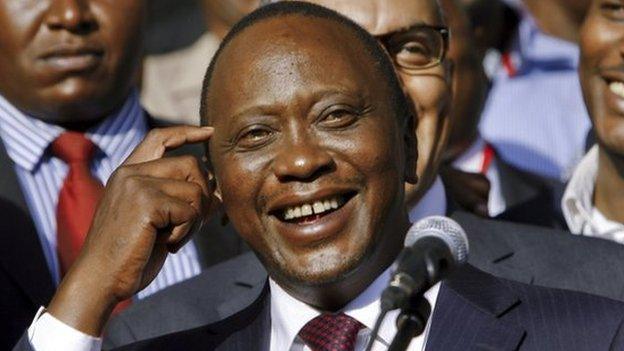Kenya election 2017: AU and Commonwealth say poll credible
- Published
Odinga supporters celebrated in Kisumu after the opposition claimed victory
Foreign observers have expressed confidence in Kenya's electoral process, despite opposition leader Raila Odinga's claim of massive fraud.
African observers described Tuesday's poll as credible, while former US Secretary of State John Kerry said its integrity remained intact.
The European Union said candidates should accept losing as "natural".
Mr Odinga alleges that results of the presidential poll have been rigged to give incumbent Uhuru Kenyatta victory.
Mr Odinga's supporters celebrated in the western city of Kisumu after his National Super Alliance (Nasa) said he should be declared the winner, although unverified official results give Mr Kenyatta a strong lead.
On Wednesday, Mr Odinga said that the IT system of the Independent Electoral and Boundaries Commission (IEBC) had been hacked, and Kenya was witnessing the worst "voter theft" in its history.
The IEBC said there had been an attempt to hack its system, but it had failed.
Many fear a repeat of the violence after the disputed election 10 years ago when more than 1,100 Kenyans died and 600,000 were displaced.
Scores of people took to the streets of Mathare, a slum in the capital Nairobi, shouting "Uhuru must go", AFP news agency reported.
In the Kawangware neighbourhood, police clashed with opposition supporters, Reuters news agency reported.
Police clashed with some opposition protesters in Nairobi on Thursday
Mr Kerry, who is heading the Carter Center's observer team, urged all sides to wait for the final results, and for the loser to accept defeat.
He said there were "minor variances here and there", but none that had so far made him doubt the poll's integrity.
The "bottom-line" was that the IEBC had in place a "transparent process of voting, counting, reporting and securing the vote", Mr Kerry added at a press conference in Kenya's capital, Nairobi.
Commonwealth observer mission head and Ghana's ex-President John Mahama said there was no reason to doubt the IEBC's ability to deliver a "credible election".
"We believe that the election has been conducted in a transparent and credible manner and that Kenyans must be commended for that election," he added.
Expressing a similar view, African Union observer mission head and South Africa's ex-President Thabo Mbeki said he was satisfied with the way the electoral commission had conducted itself.
The opposition's hacking allegations should be looked into by the IEBC, he added.
In a statement, the European Union observer mission said the opposition had made "serious allegations" and it was up to the IECB to complete the "remaining steps with maximum transparency and adherence to the law".
"Candidates and their supporters must accept that not winning is a natural part of a democratic competition," EU observer mission head Marietje Schaake said.
"Any irregularities or challenges to the process and outcomes should be addressed through petitions and the courts," she added.
The IECB said it hoped to release final results from the presidential poll on Friday.
Raw polling data published on its website says that with almost all of results in, Mr Kenyatta - who is seeking a second term - is leading with about 54.3%, to Mr Odinga's 44.8% share of the vote.
These suggest Mr Kenyatta is heading for a first-round victory.
Mr Odinga's claim of rigging led to sporadic outbreaks of violence on Wednesday, but a government spokesman denied reports that two people had been killed in election-related unrest.

Kenya's election in numbers:
Kenya elections 2017: "Six-piece" vote explained
Six separate ballot papers: For president, national assembly, female representatives, governors, senate and county assemblies
47 parliamentary seats and 16 senate seats reserved for women
Eight presidential candidates: President Uhuru Kenyatta and opposition leader Raila Odinga are favourites
Kenyatta beat Odinga in 2013 - their fathers were also political rivals in the 1960s
A candidate needs 50% plus one vote for first-round victory
More than 14,000 candidates running across the six elections
More than 45% of registered voters under 35
Some 180,000 security officers on duty nationwide in case of trouble
- Published9 August 2017
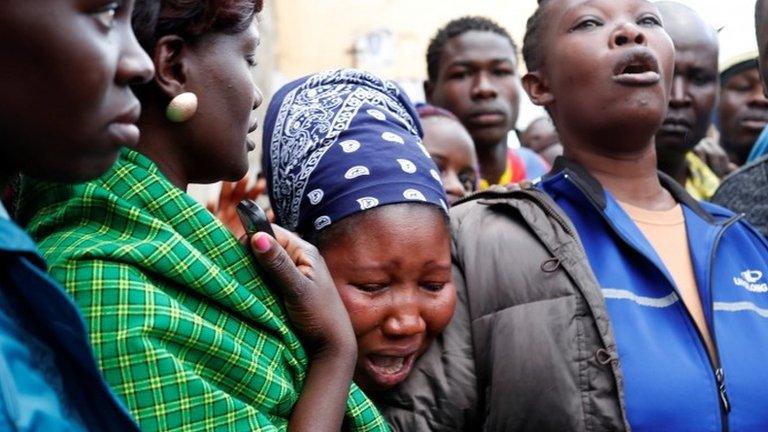
- Published8 August 2017
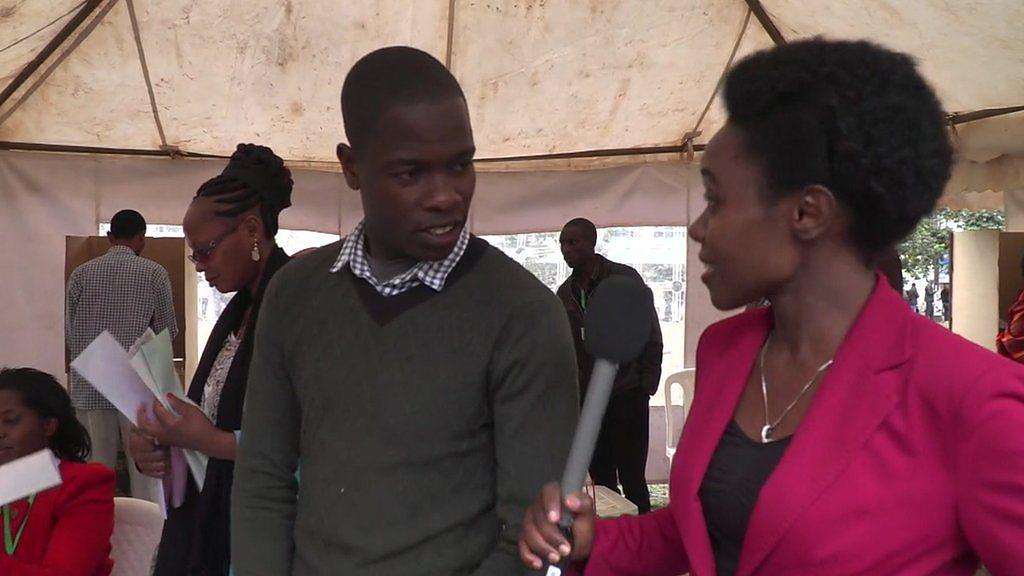
- Published7 August 2017
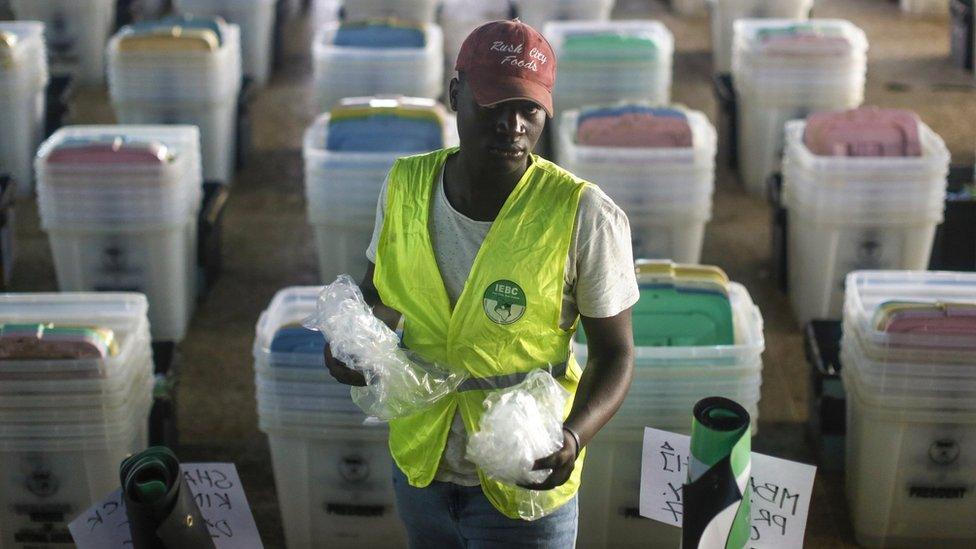
- Published5 August 2017
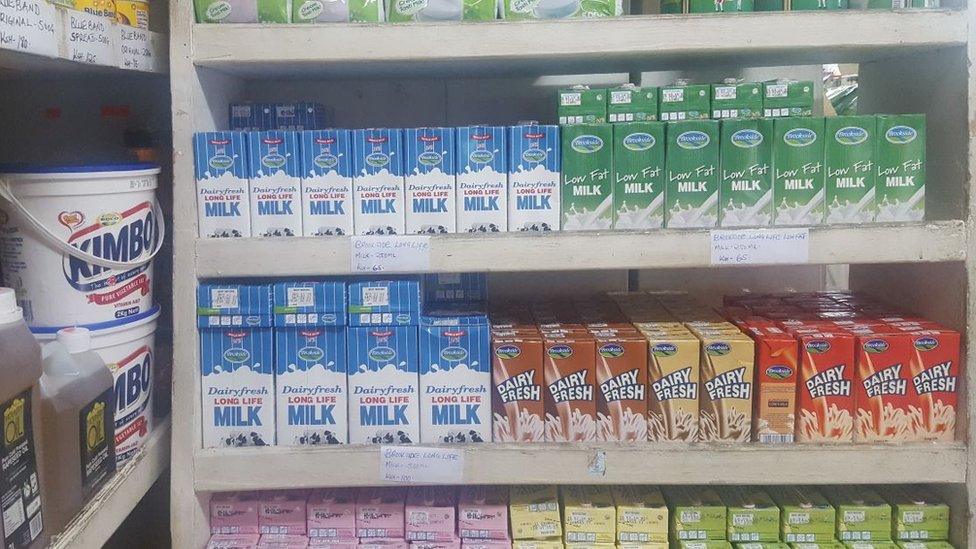
- Published4 August 2017
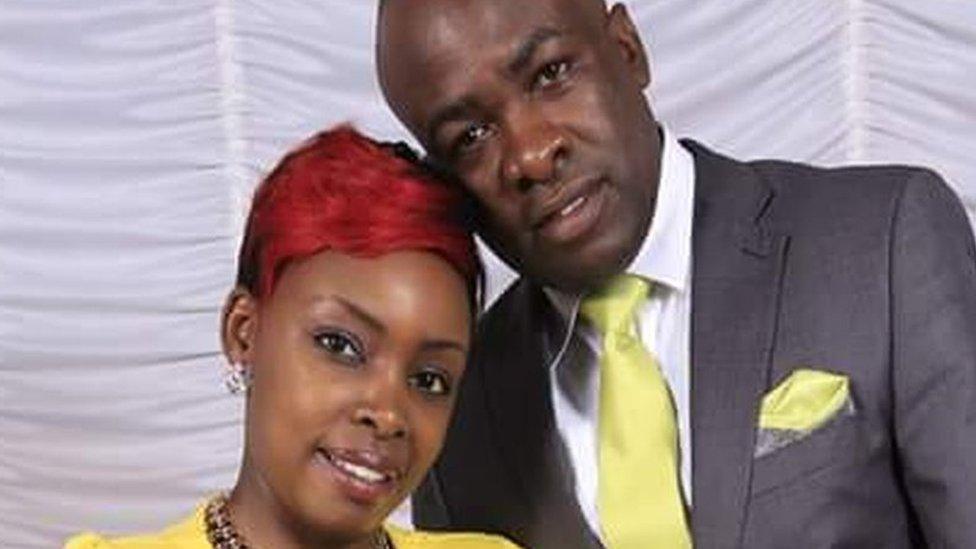
- Published3 August 2017
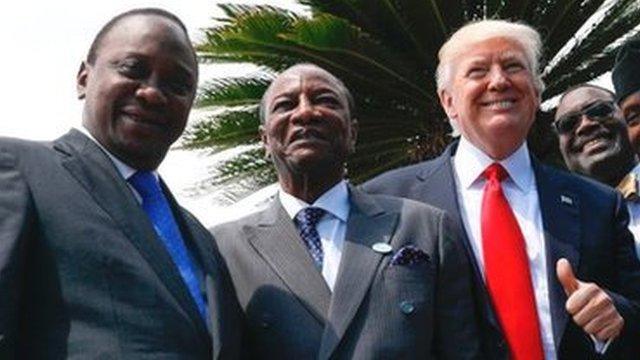
- Published5 December 2014
